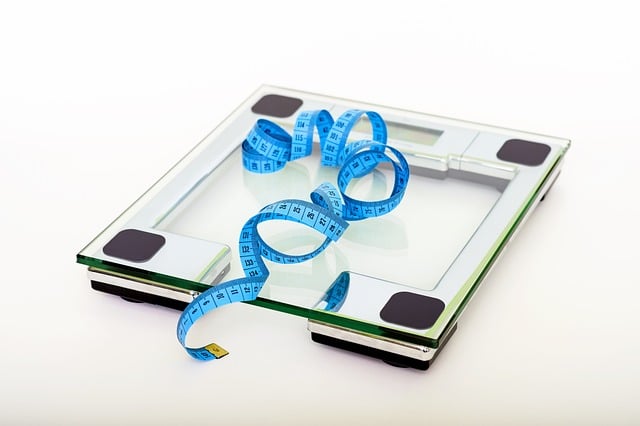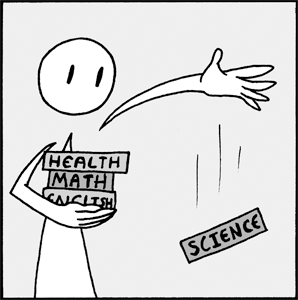Most students think a lot about their GPA in high school. There's no doubt that GPA is one of the most important pieces of information colleges will consider in your application. However, GPA can vary drastically in the way it's calculated at different schools. Some high schools use unweighted GPAs and some use weighted GPAs. I'll give you an overview of the differences between the two and what each type of GPA might mean in the context of your personal experiences.
What's the Difference? Weighted vs Unweighted GPA
There are several options for students who wish to accelerate to college-level learning during their high school years. Besides AP classes and the IB program, there's the AICE Diploma.
If you're not very familiar with the AICE program, never fear—this article will bring you up to speed. Here, we'll cover what the diploma is and how you can get it as well as the benefits of pursuing this program (including scholarships and college credit).
What is the Summer Slide? How Can You Prevent It?
Have you ever heard of the summer slide? Sadly, it has nothing to do with a water park or any park, for that matter. Instead, it has to do with the learning loss students experience during the summer months.
If you’ve ever realized in July that you can’t remember any of the facts you memorized for a final exam, you’ve experienced summer slide. If you’ve started a new school year needing a review because you've forgotten the material you learned at the end of the last year, that’s summer learning loss.
So what is summer slide? It is summer learning loss of the knowledge and progress you made during the school year. And yes, it’s very real and affects most kids from elementary school all the way through high school.
Summer learning loss statistics tell us that each summer, kids lose 2-3 months of knowledge they had gained during the school year, which is a lot! Math loss seems to be the greatest, and high school students tend to lose the most knowledge. You might have noticed that since COVID, you feel more behind than ever, so summer slide can really hurt you academically.
Do you have a low GPA? Are you wondering what colleges accept a 2.0 GPA?
Out of all the schools in the country, we've compiled a complete list of colleges with low GPA requirements and ranked the best ones. Even if you have a low GPA, that doesn't mean a great education is out of reach for you. Keep reading to figure out what your options are for higher education.
If you're still in high school, you might be curious about how college GPAs work and what you can expect for grades given your major of choice. Just like high schools, colleges vary in how they calculate GPA. Grade inflation also significantly affects college GPA at most schools, causing many students to end up with higher GPAs in college than they had in high school.
In this article, I'll give you the facts about average GPAs at different types of colleges and within a variety of college majors.
Which High School Classes Do Ivy League Schools Require?
College admissions can seem like a giant puzzle, especially if you're hoping to attend an Ivy League or other extremely selective school. Planning your high school schedule carefully is definitely important, but these schools' expectations aren't as inflexible as you might think they are.
In this article, I'll provide a concise overview of what Ivy League admission requirements are for high school transcripts and give you some tips on how to map out your classes so you have an excellent shot at being accepted.
What Is the Advanced International Certificate of Education (AICE)?
For students looking for a more challenging high school experience or for a chance to earn college credit, many high schools offer advanced college-level programs. The newest one of these is the Cambridge AICE, an international diploma program created via the University of Cambridge in England.
Curious about whether this program is right for you? In this article, I'll explain the AICE approach, the coursework necessary to get the diploma, and how it compares to AP and IB classes.
The transition to high school causes academic whiplash for many students. It’s hard to adapt to a new environment and get good grades when you’re given more independence in your assignments and are expected to learn more challenging materials.
In this guide, I’ll go through the most important strategies that will help you to get good grades in high school and beyond.
How to Improve Reading Comprehension: 8 Expert Tips
Reading is a skill many people take for granted, but the act of reading and properly comprehending a text is a complex and interactive process. It requires several different brain functions to work together and most often requires one to puzzle through multiple layers of context and meaning.
Because reading comprehension is so complicated, we can often find ourselves understanding the most basic interpretation of a text, but missing the emotional core or the "big picture." Or we might just find our brains spinning with no clue at all as to what a text is attempting to convey.
But luckily for everyone who struggles in English classes, on standardized tests, or in daily life, reading comprehension can be improved upon (and it's never too late to start!). In this guide, I explain step-by-step how to improve reading comprehension over time and offer tips for boosting your understanding as you read.
How to Study Better in High School: 16 Expert Tips
Studying is about finding a right balance between concentration, understanding, retention, and rest. And, just like any task that taxes your energy—be it physical or mental—it is often just as difficult to get started as it is to engage in the task itself.
But don't despair! Whether you need to study for just one test, or want to learn how to study over the long haul and retain a whole term's worth of information, we've got you covered. We'll explain exactly how to study better, helping you revamp both your daily and long-term study habits and giving you the best study tips for managing your time and keeping your focus as you actually study.
And, once you've mastered these study techniques, we'll also show you how to prepare yourself for test day so you can do your very best when the chips are down. So let's get to it!
Complete List of 100+ Free Online High Schools
Online high schools can be a way for students to take high school classes and graduate at their own pace, without having to adhere to strict schedules and the distractions of a traditional school. So if you feel that an in-person school isn't right for you for whatever reason, an online school might be the perfect fit.
In this article, we'll give you a list of all the (tuition free!) online high schools available in each U.S. state. We'll also explain how online high schools work and why an online high school could be right for you.
So let's get started!
Should You Drop A Class? Does It Look Bad? Why?
Are you struggling in a class or simply not enjoying it and wondering if you should drop it? Are you worried about how this might look to colleges and future employers? Should you drop a class?
Read this guide to learn about the benefits and drawbacks to dropping and how to decide whether or not you should drop a class.
What Should You Do If You Go to a Bad High School?
The quality of education at different high schools can vary widely, sometimes to the detriment of students. If you go to a school that doesn’t offer the programs and level of instruction that you would like, you might feel frustrated and worried about getting into college.
In this article, I’ll give you some of the characteristics of a “bad” high school and tell you what steps you can take to improve your educational experience and college applications despite these disadvantages.
College GPA Requirements: What Do You Need to Get In?
As a high school student, you may be wondering if your GPA is high enough to meet the admission standards at your college of choice. Not every college has specific GPA requirements, but it's possible to estimate a cutoff for admission based on statistics from previous classes. In this article, I'll explain how GPA requirements for colleges work and give you the tools to figure out exactly how high your GPA should be to apply successfully to your dream college.
Most likely, during high school you've taken a mix of classes: some honors, some standard, and some APs. The weighted GPA reflects that those classes have different difficulty levels. So what's the easiest way to figure out what your weighted GPA is? We have two great methods to calculate it!
























